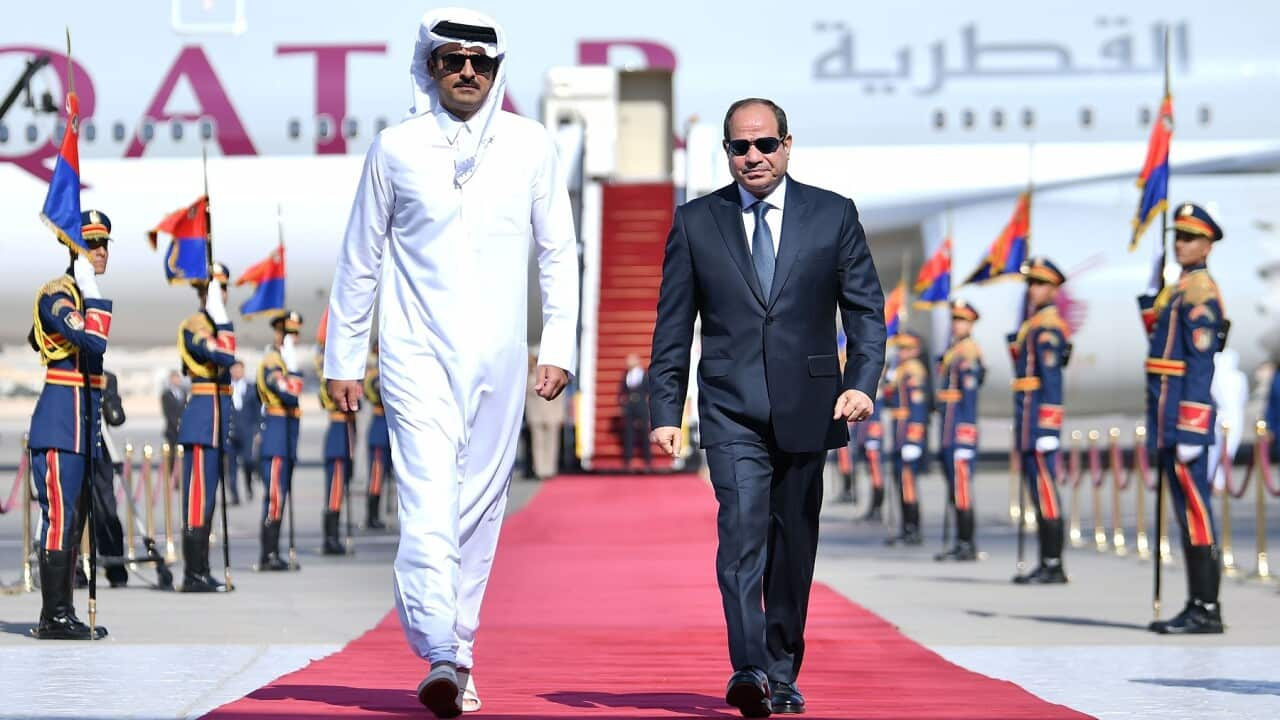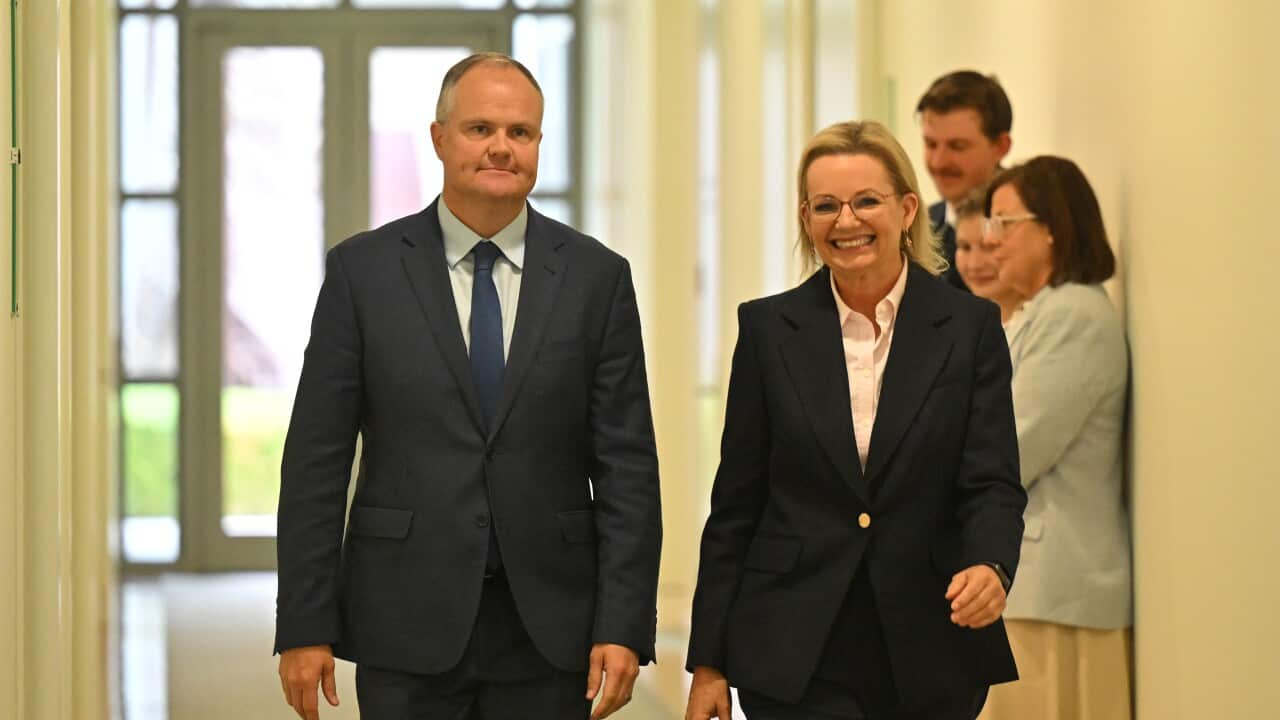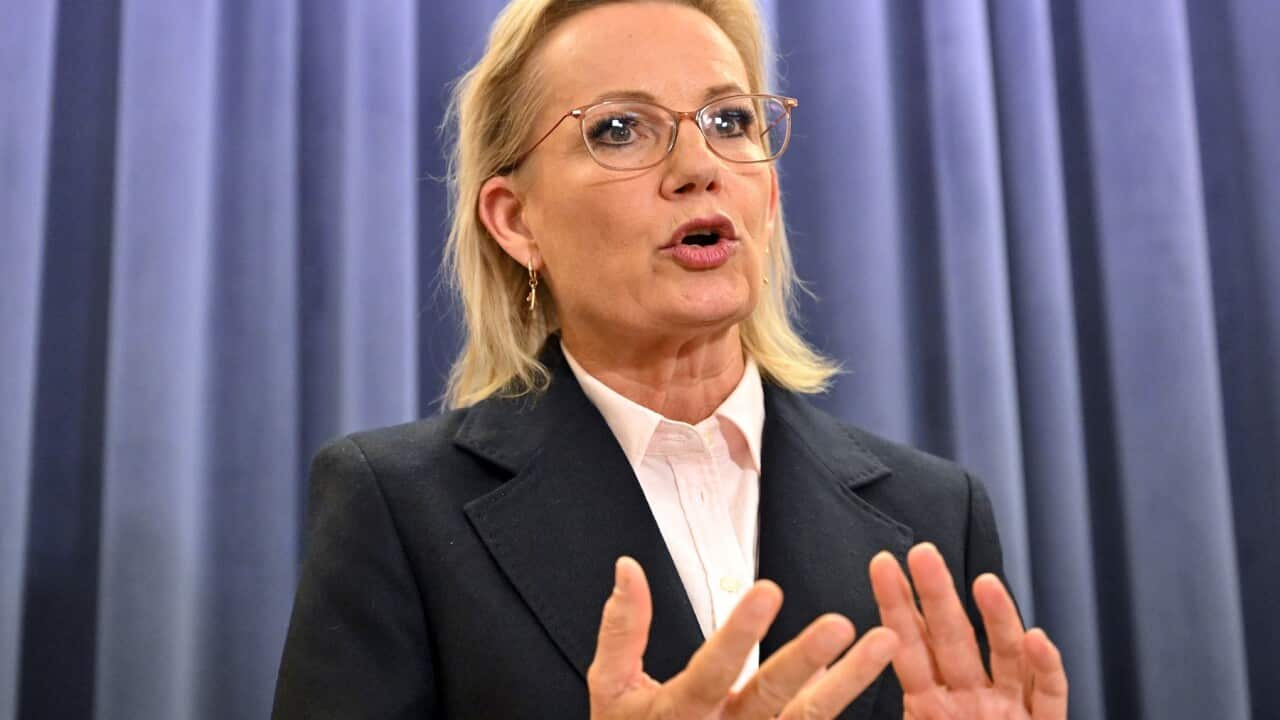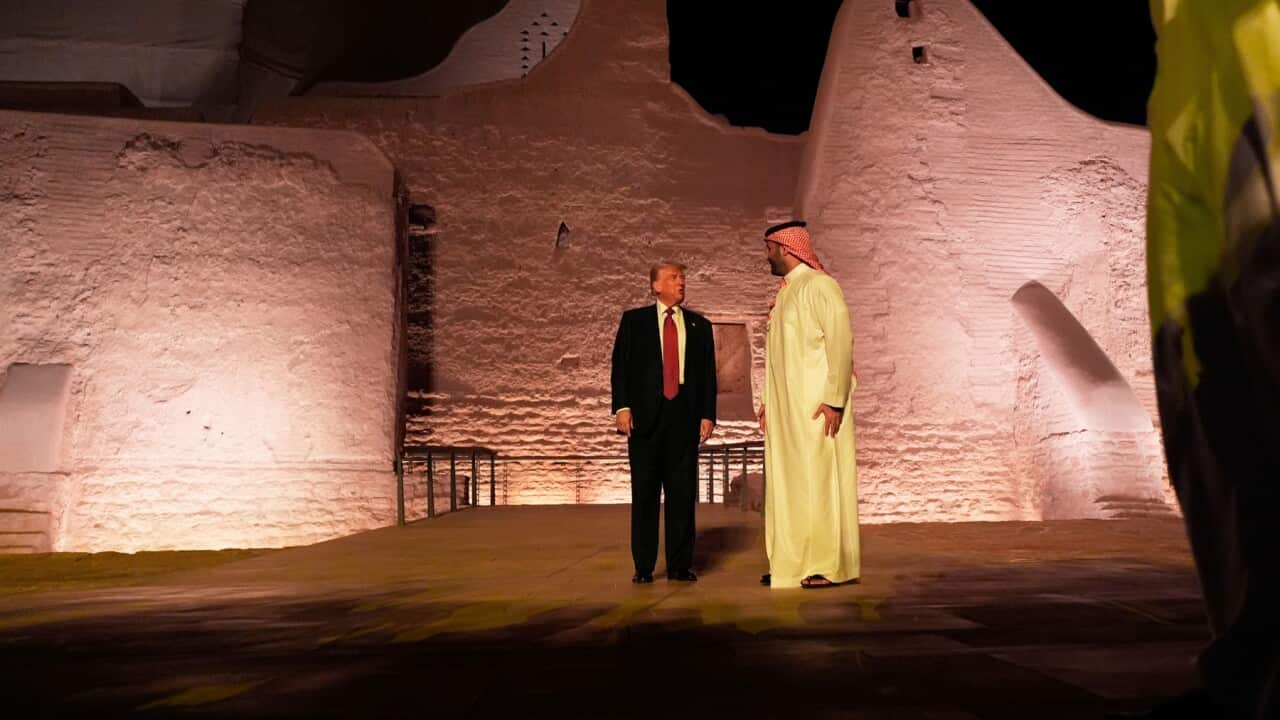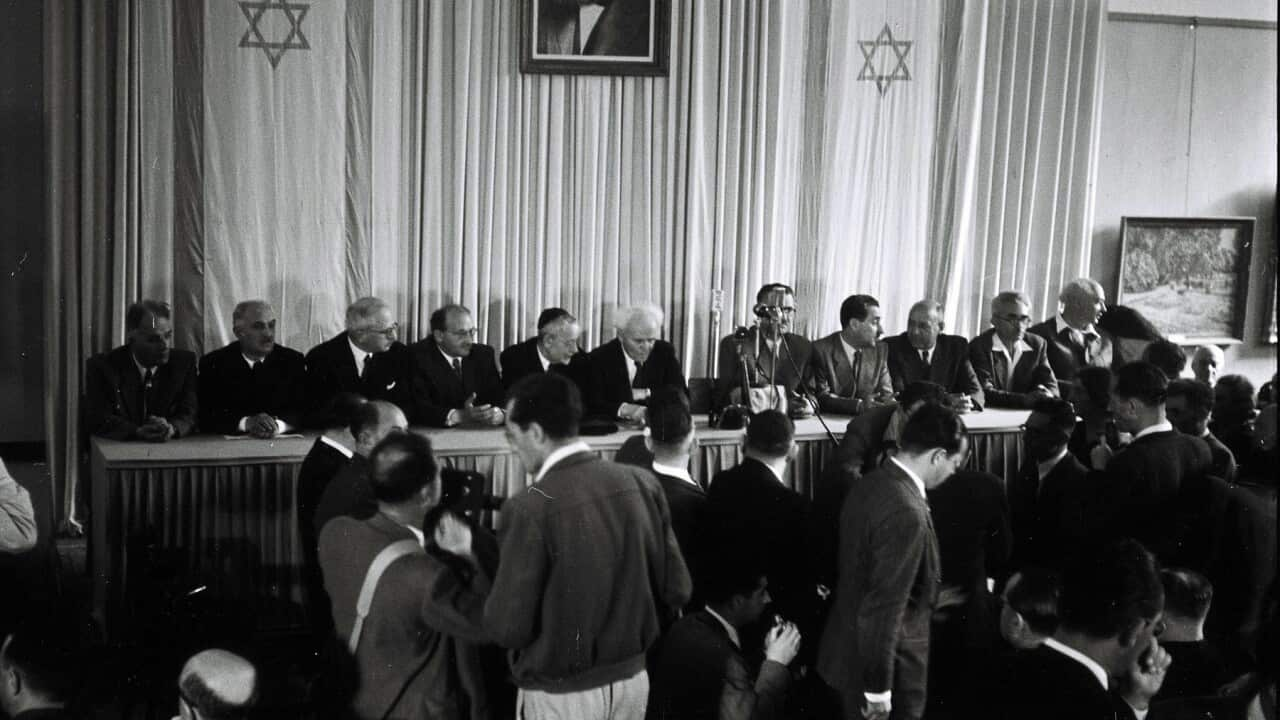TRANSCRIPT
For years, Qatar has been keeping up a delicate balance between its allies in the east and the west.
The small Persian Gulf country is no larger than the Greater Sydney area and home to barely more than two million inhabitants, most of whom are not even Qatari citizens.
But it hosts the largest American military base in the Middle East, where at least 8,000 American troops are stationed.
All while hosting the political leadership of Hamas, foreign offices of the Taliban, keeping close ties with Iran, and refusing to normalise relations with Israel like Egypt, Jordan or the United Arab Emirates did.
Jessica Genauer is International Relations Senior Lecturer at Flinders University.
"The countries that have normalised relations with Israel in recent years are not necessarily the ones that are going to have good and open channels of communication with Hamas. But at the same time they want to be careful, kind of not to destabilise their domestic populations if they allow too much widespread pro-Palestinian protests or things of that sort."
Hamas took around 240 hostages back into Gaza.
Now Qatar is at the epicentre of negotiations that could lead to the liberation of hostages and a temporary ceasefire.
Qatar is not neutral however, and leans on the side of Hamas.
But its proximity to Western powers put it in a unique position to act.
In doing so, it follows a typical playbook of small countries, trying to use diplomatic influence rather than military might.
Ian Parmeter is from the ANU centre for Arab and Islamic Studies.
"Qatar doesn't need money, it doesn't need to be paid, it simply is very happy to get international respect. It sees itself as being able to play a unique role in the region. Its brand is to get on well with all states in the region. One of its foreign ministers once said "we don't do enemies"."
In the past, Qatar helped secure the release of Americans detained in Iran, and academics held captive in Afghanistan, including Australian national Timothy Weeks.
Last month, it even helped the release of four Ukrainian children removed from their families and taken to Russia.
"It's also done quite a few other regional tasks in this way. It helped negotiate a ceasefire in Darfur, in Sudan, and it's helped intervene in a number of conflicts in Lebanon. So it really has carved out a niche for itself."
Qatar may even been more eager to play such a role as its influence in the region had taken a hit in the last few years.
Between 2017 and 2021, Saudi Arabia, the UAE, Bahrain and Egypt were angered by its support of opposition groups like the Muslim Brotherhood, and by the favourable news coverage the state-owned Al Jazeera network was giving to the Arab Spring protests.
All three countries ended up severing ties with Qatar and imposing a coordinated trade blockade on the country.
The blockade is estimated to have cost Qatar more than 60 billion dollars.
Jessica Genauer explains.
"What I see happening now is that Qatar sees an opportunity to regain that influence and regain prominence within the region and ensure that something like the trade blockade that was imposed by Saudi Arabia and the UAE could not occur again."
Being at the centre of negotiations between Hamas and Israel may be Qatar's next step towards regaining its regional influence.
